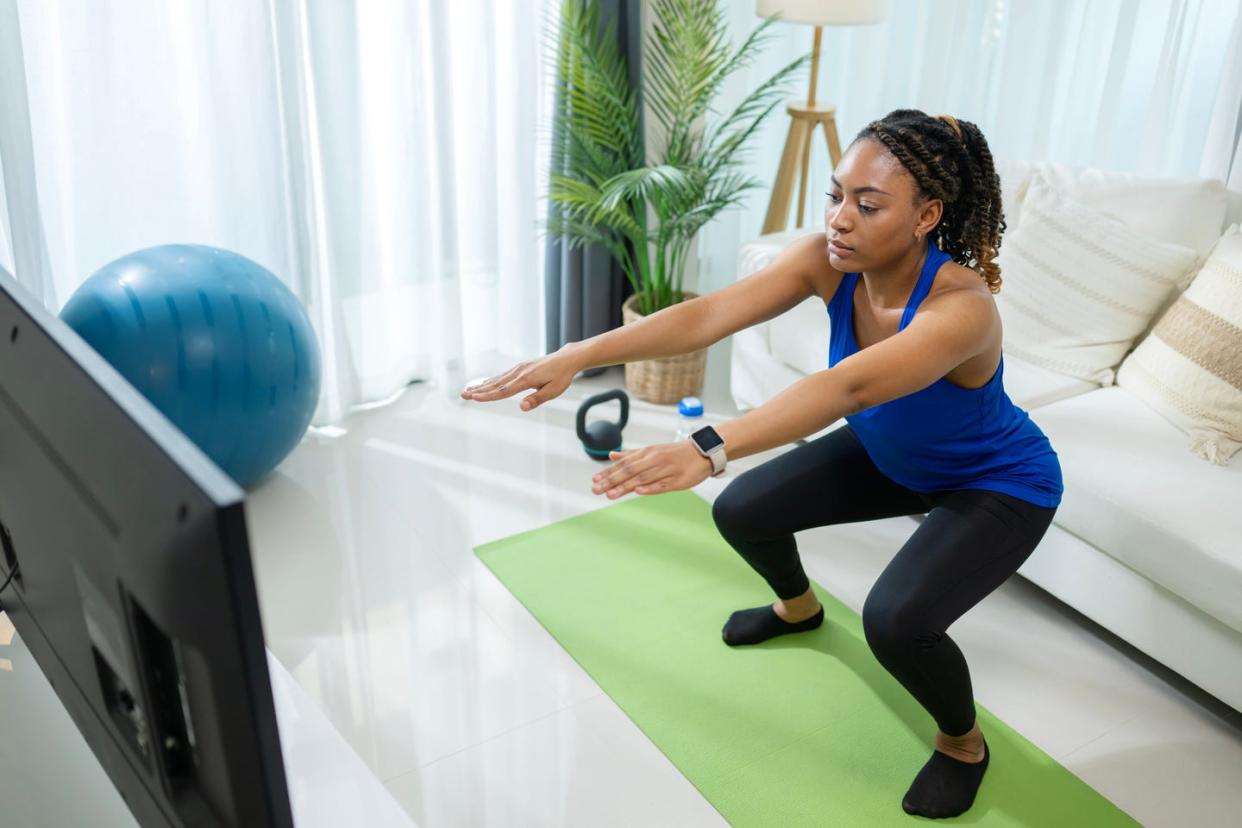The Surprising Benefit of Doing Short Bursts of Exercise in the Evening

"Hearst Magazines and Yahoo may earn commission or revenue on some items through these links."
Researchers examined the quality of sleep in a group of participants that did no activity before bed and another group that broke up sedentary time with quick bursts of movement.
The findings suggest that doing bodyweight exercises before bed can actually improve your sleep, rather than harm it.
While there’s ample research noting that regular exercise can improve sleep quality, as well as lower the risk of sleep disorders, it’s generally been discouraged to do intense physical activity too close to bedtime, because your body doesn’t have enough time to wind down before sleep.
However, a new study in BMJ Open Sport & Exercise Medicine suggests “mini-bursts” of exercise that breaks up evening sedentary time can actually be a boon for sleep.
Researchers asked 28 men and women to do two different evening activity sessions. In one, participants sat continuously for a four-hour period while watching shows on a streaming service—similar to what many people do most nights, lead researcher Jennifer Gale, Ph.D.(c), researcher at the University of Otago in New Zealand, told Bicycling.
In the other session, they still watched shows, but broke up that four-hour block every 30 minutes with three bodyweight exercises—calf raises, squats, and alternating knee raises—for three minutes per session. Each exercise was performed for 20 seconds and three rounds each.
“Although we used specific exercises, people could likely get a similar benefit from other types of activity, such as marching in place or walking up and down stairs in their house,” she added.
Participants also provided information on sleep factors like ability fall asleep quickly, waking up throughout the night, and overall sleep duration, after both the sedentary and the active sessions. Sleep was also measured using a wrist monitor.
Sleep disruption frequency was the same on both nights, but during the night after the activity breaks, participants slept for almost 30 minutes longer. Gale said that researchers were surprised by the results, as they expected sleep quality would diminish by even short bursts of activity.
“We were happy to see that wasn’t the case,” she added. “Because sleep hygiene guidelines discourage exercise before bed, it was interesting to see that the activity breaks actually extended sleep duration without affecting sleep quality. That was very exciting.”
She noted that the mechanism is unclear, and more research will need to be done around why this might help. One potential reason, though, is that these short bouts of activity can help blood sugar regulation in the evening, she said.
Previous research has linked sleep issues and blood sugar problems, to the degree that several studies have suggested short sleep duration or insomnia can raise risk of developing type 2 diabetes.
Another avenue for research is looking at the effects of evening activity bursts combined with longer, more intense sessions done earlier in the day. For example, a study in Sleep Medicine on people with insomnia found that morning exercise reduced sleep disruption later that night.
With both previous research and the current study, the message for better sleep seems clear: Move more, as even short sessions can have a significant effect on the quality of your shut-eye.
You Might Also Like
